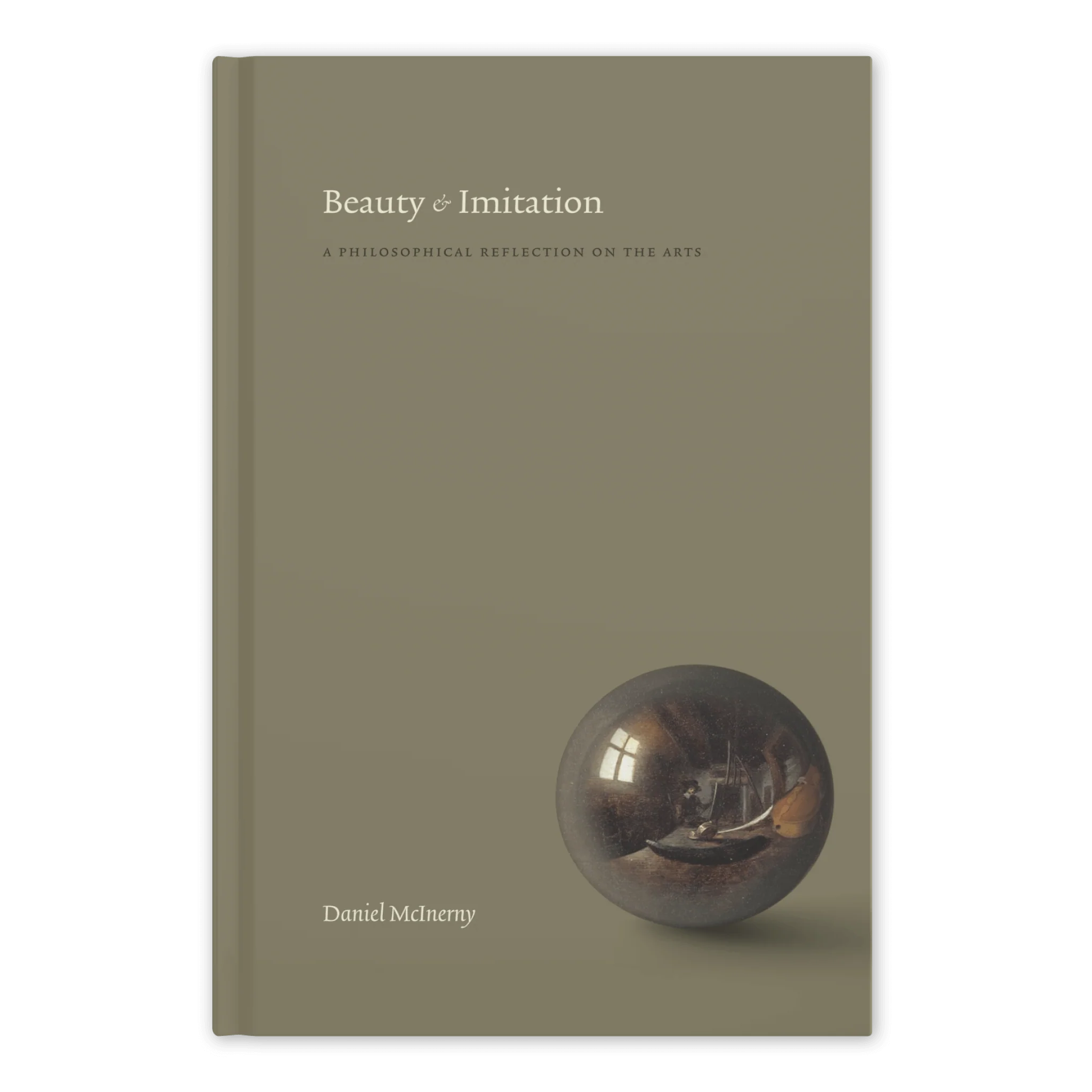Beauty and Imitation: A Philosophical Reflection on the Arts

Author: Daniel McInerny, PhD
Purchase your copyThe human person is a truth seeker, and one of the most compelling ways human beings pursue truth is through the arts. In Beauty and Imitation: A Philosophical Reflection on the Arts, Daniel McInerny argues for an understanding of art as a form of inquiry into truth that proceeds by way of sensible beauty.
Drawing upon the thought of Aristotle and St. Thomas Aquinas, McInerny argues for the unfashionable yet philosophically compelling view that art is essentially “mimetic,” imitative of human action. But what does it mean for art to imitate human action? It means that art imitates the way human beings by nature quest for fulfillment, or happiness. In questing for fulfillment, human life takes the form of a story, and so the arts—all the arts, from painting to music, from fiction to film—are storytelling arts whose beauty reveals the truth about human happiness.
The first part of the book features a renewed defense of the ancient Aristotelian claim that art is mimetic and that its imitation of the human story takes the form of a moral argument. The second part shows how audiences are transformed by the moral arguments the mimetic arts make, and the third concludes with a guided tour of the mimetic arts, where specific arts are considered in light of the Aristotelian and Thomistic principles advanced earlier.
What People Are Saying:
“This is literally the best book on beauty that I have ever read: the most convincing, clear, and comprehensive; the most eye-opening and satisfying; the most insightful and delightful. It is a masterpiece. I do not use that word lightly, but there is no other word for it. It is to our experience of all the aspects and instances of beauty what sunrise is to a landscape. The ‘aha!’ experience: recognition, ‘that’s the way it is.’”
— Peter Kreeft, Professor of Philosophy, Boston College, author of Socrates’ Children
“Daniel McInerny’s book clarifies why we enjoy works of art—pictures, music, drama and movies, poetry and novels—and it also shows why we revere such works: not as ends in themselves, but because they place us in the truthful presence of what they depict. The book reactivates Aristotle’s understanding of mimesis and Aquinas’s enhancement of it. It shows how art elevates what it displays as well as the community that experiences it. It is a metaphysical and theological reflection on the arts, written in the style and spirit of C. S. Lewis: limpid prose, abundant citations, colorful examples. A book to study and learn from, then to browse in and enjoy.”
— Msgr. Robert Sokolowski, Elizabeth Breckenridge Caldwell Professor of Philosophy, The Catholic University of America
“McInerny delivers a sustained and compelling defense of art as mimetic form, a philosophical defense rooted in careful analysis of specific works of art, ranging from ancient texts to contemporary film. The book does more than talk about beauty; it offers the careful reader a training in the way of beauty.”
— Thomas Hibbs, J. Newton Rayzor Sr. Professor of Philosophy, Baylor University
